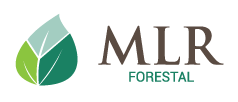News
MLR advances in the transition process from the UTZ certificate to the Rainforest Alliance

Since 2017, MLR Forestal has been UTZ certified, which has been renamed the Rainforest Alliance Sustainable Agriculture Standard . To complete this transition, the company underwent an external audit that was carried out at the end of September.
Ana Gabriela Ruiz, responsible for the Environment and Certifications of MLR Forestal, said that, before being evaluated, the company carried out a self-diagnosis. “This allowed us to see how we were doing. We had findings, we implemented preventive and corrective actions and we proceeded with the internal audit.”
The six requirements of the Sustainable Agriculture standard
The Rain Forest audit lasted three days and began with a short training and an opening meeting. The top management and the different MLR heads were present at said meeting, and the Rainforest standard focused on cocoa was presented at this meeting.
“They explained to us that there are six fundamental requirements: management, traceability, income and shared responsibility, agriculture, social and environment. In turn, each requirement is subdivided into others, but it was the fundamental ones that we had to present in the audit”, Ruiz detailed.

Then and on that same day, there was a documentary stage, in which records and evidence of all MLR procedures and activities were shown. Here the cocoa management plan, the traceability instructions, procedures of the social part, the approach and evaluation of situations for the prevention of harassment, the handling of complaints and suggestions from workers and community members, the management plan environment, water quality monitoring, protection areas and training of personnel regarding certification.
Field inspection and steps to follow
The next day, Mario Barboza, Rainforest Alliance Senior Associate for Sustainable Agriculture and Carla Patricia García, Rainforest Alliance Auditor, along with Ruiz, made an extensive field visit.
Several cocoa activities were verified, such as the application of chemicals where they (the auditors) were able to corroborate that the appropriate protective equipment is used, that the collaborators are trained, that they are given medical examinations. They then interviewed a female-only crew to talk about bullying prevention, complaints and suggestions, and gender equality. Then they went to the camps, they checked the housing conditions, the toilets, the kitchens. In addition, they visited the protection areas, reviewed waste management, and the electric power service.
Finally, there was a closing meeting where senior management and department heads were present. “There the auditors let us know all their findings for the continuous improvement of the processes. They told us what we must present soon and they gave us a period of six months to obtain the certificate. They need to give us a report with the analysis of everything that they found, then we will make an action plan, execute it and send evidence.”

The certifications of MLR Forestal
MLR Forestal has two international certifications:
Forest Stewardship Council TM
The FSC certification granted by the Forest Stewardship Council since 2013 that certifies forest plantations through compliance with ten principles:
- Compliance with laws
- Workers’ rights and employment conditions
- Rights of indigenous peoples
- Relations with the communities
- Forest benefits
- Environmental values and impacts
- Management planning
- Monitoring and evaluation
- High conservation values
- Plantation planning and management in accordance with FSC Principles and Criteria.
UTZ / Rainforest Alliance
In the case of cocoa, the company has had the UTZ / Rainforest Alliance seal since 2017 that certifies good practices in cocoa production through evaluation modules that assess environmental, social, administrative management and product traceability. This certificate rewards companies that are committed to the sustainable and responsible management of cocoa production in all its stages. It is in the process of being updated to become the Rainforest Alliance Sustainable Agriculture Standard.
Share




